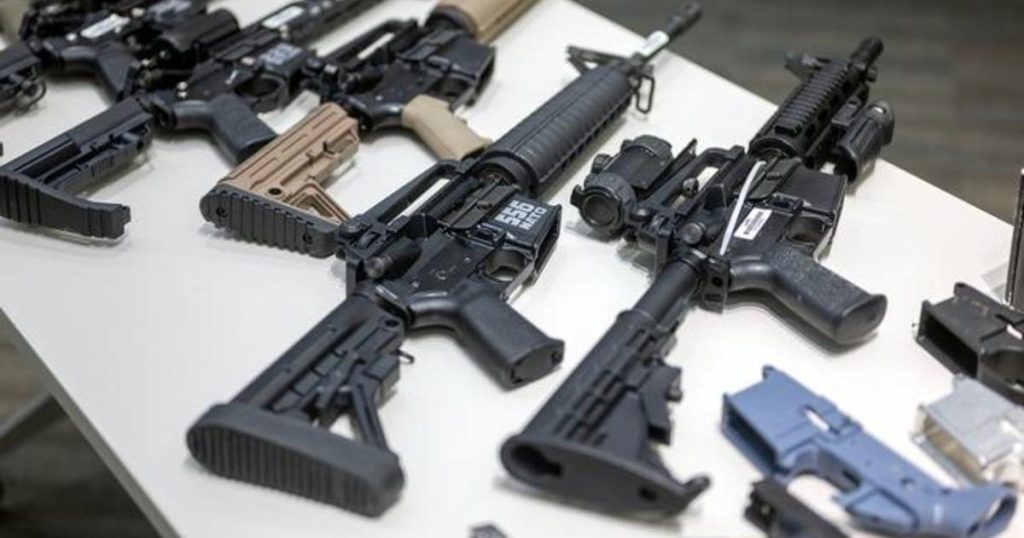The Supreme Court is set to consider a challenge to the Biden administration’s regulation of ghost guns, untraceable firearms, which has reportedly led to a reduction in their use in major American cities. The case involves a 2022 regulation from the Bureau of Alcohol, Tobacco, Firearms, and Explosives that aims to subject ghost guns to the same requirements as commercial firearms sales. The key issue is whether the administration overstepped its bounds in issuing the rule, rather than a violation of Second Amendment rights. Legal experts believe Chief Justice John Roberts and Justice Amy Coney Barrett will play critical roles in the outcome of the case.
The 2022 regulation clarified the definition of “firearm” in the Gun Control Act of 1968 to include weapon parts kits that can be assembled into operational firearms and incomplete firearm components. These measures were put in place to address the rise in crimes involving ghost guns, which can be easily made using kits or parts available online. The lack of serial numbers and transfer records on ghost guns makes them appealing to those who cannot legally purchase firearms or intend to use them in criminal activities. The Biden administration argues that regulating ghost guns will help prevent their misuse and enhance public safety.
A group of 20 major cities, including Baltimore, Boston, and Chicago, have supported the rule, noting a decrease in the prevalence of ghost guns since its implementation. The cities believe that the regulation will continue to reduce the availability of ghost guns over time if upheld by the Supreme Court. However, opponents of the rule, including gun owners, advocacy groups, and parts kit manufacturers, argue that the ATF’s definition of a firearm exceeds what Congress originally intended in the Gun Control Act. They claim that regulating privately made guns should be a decision made by Congress, rather than by the agency.
The Supreme Court agreed to review the 5th Circuit’s decision invalidating the ghost gun regulation. In an earlier ruling, the Court voted 5-4 to allow the Biden administration to enforce the rule while the case was being reviewed. Conservative justices expressed opposition to the regulation, suggesting a potential close decision on the matter. The Biden administration has likened assembled ghost guns to furniture kits, arguing that they should be subject to regulation similar to commercial firearms. The outcome of this case could have significant implications for gun regulations and the regulatory powers of federal agencies.
The Court’s past decisions on agency overreach and regulatory power may influence the outcome of this case. The justices have recently shown a willingness to limit agency authority and deference in interpreting laws passed by Congress. If the Court strikes down the ghost gun regulation, it could impact future firearms restrictions and empower a subset of the gun industry operating outside the current regulatory system. Ultimately, the Supreme Court’s ruling on this case is expected to be issued by the end of June 2025, with Chief Justice Roberts and Justice Barrett potentially playing pivotal roles in the decision.


